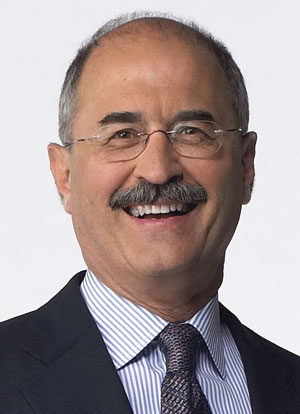The Law Society of Upper Canada has lost a bid to bar from practising law former judge Kerry Evans, who resigned in 2004 after the Ontario Judicial Council found him guilty of sexual misconduct.

A panel of Divisional Court judges ruled, in
Law Society of Upper Canada v. Evans, that a law society appeal panel was right to restore Evans’ licence while placing him under restrictions.
It’s believed to be the first case in Canada in which courts have addressed the issue of restoring the licence to practise law of a former judge found guilty of serious misconduct. However, a legal scholar says, the “disjointed connection of decisions” in the case render it essentially useless in terms of setting a precedent.
Evans’ lawyer, Chris Paliare, of Paliare Roland Rosenberg Rothstein LLP, tells Law Times his client “was ecstatic at the decision.”
“Hopefully this is the end of the torturous road he has had to follow to get himself reinstated as a lawyer,” says Paliare.
The law society declined Law Times’ request for comment on the case, but released a statement via e-mail from Treasurer Derry Millar saying, “The law society is studying the decision and has not yet decided on next steps.”
The judicial council upheld seven complaints against Evans, 58, that related to interactions with female courthouse employees from 1999 to 2002. The women accused Evans of improper, sometimes sexual, physical contact, along with remarks with sexual innuendos.
Evans resigned his judgeship before the judicial council voted on his removal, and applied to the law society for reinstatement of his licence in 2006. An LSUC hearing panel turned him down, citing concern that his swift reinstatement would hurt the profession’s public reputation.
But in March 2007, an appeal panel overturned that decision and agreed to restore Evans’ licence, with the caveat that he spend two years practising under the guidance of another member of the bar.
“We believe that an informed member of the public will appreciate that the fact that by his conduct the appellant showed himself unfit to be a judge does not inevitably signal that he is unfit to earn his livelihood again as a member of the bar,” the appeal panel wrote.
“The appellant was a member of the bar for 16 years with an excellent reputation and unblemished record before his judicial appointment.
There is every reason, given the psychiatric evidence and the extensive character evidence showing the widespread personal and professional support that he has amongst his peers, to believe such a commendable state of affairs can be achieved by him again during the rest of his legal career.”
Paliare says the Divisional Court agreed with the appeal panel’s decision to overturn “two fundamental and grievous errors” by the hearing panel.
“I am not able to say that the appeal panel proceeded on a wrong legal basis or applied the wrong legal test,” wrote Justice Anne Marie Molloy in the July 8 decision, for a panel that also included justices Frances Kiteley and Katherine Swinton.
The hearing panel put the onus on Evans to establish, “on the basis of clear, cogent, and convincing evidence,” proof supporting the restoration of his licence, says Paliare. But the appeal panel found that in the context of a restoration application, “the ordinary burden of proof” should be applied, he says.
The hearing panel also took the view that it was without jurisdiction to impose conditions on a member seeking a restored licence, says Paliare.
“The Law Society Act itself says conditions can be imposed when a discipline panel makes orders,” he says. “They said, ‘Oh no, not in this kind of case.’ That’s just dead wrong.”
Paliare says the hearing panel’s errors “just jump off the page at you.”
University of Toronto administrative law professor Lorne Sossin says the case won’t give much guidance to courts. The hearing panel was in the best position to apply conditions to Evans’ practice, he says.
“You want a clear connection between the eyes and ears that were hearing from Evans himself, and all the other experts, and the remedy,” says Sossin.
It’s unclear in the appeal panel’s decision where it came to the conclusion that a two-year period of supervision should be applied, he says.
“You’d want to have all this being carefully calculated or elaborated based on the specific factual matrix in front of them,” says Sossin. “That’s my main worry, that there’s a clear disconnect in this case between the eyes and ears that heard the evidence, and the decision-makers that are applying the interpretation of the law.”
While he doesn’t disagree with the Divisional Court’s decision, Sossin says the matter should have been remitted to the hearing-panel level.
“Ultimately, it’s hard to know what we draw from this as a precedent, given that it gets resolved in this disconnected way between the fact-driven part of the process and the law-driven part of the process.
“It doesn’t do a great job of serving the public’s interest in having a clear understanding of the good-character standards that are brought to bear on all lawyers of whatever stripe.”
Evans started his career in 1981 as a Crown counsel in Toronto, where he helped create a sexual abuse protocol. He moved on to practise criminal law in Barrie, Ont., before being appointed to the bench in 1997.
Evans was acquitted in 2003 of sex assault charges stemming from one of the allegations against him. He is currently practising criminal law in the Barrie area, says Paliare. His practice restrictions will be lifted in March 2009.

 A panel of Divisional Court judges ruled, in Law Society of Upper Canada v. Evans, that a law society appeal panel was right to restore Evans’ licence while placing him under restrictions.
A panel of Divisional Court judges ruled, in Law Society of Upper Canada v. Evans, that a law society appeal panel was right to restore Evans’ licence while placing him under restrictions.